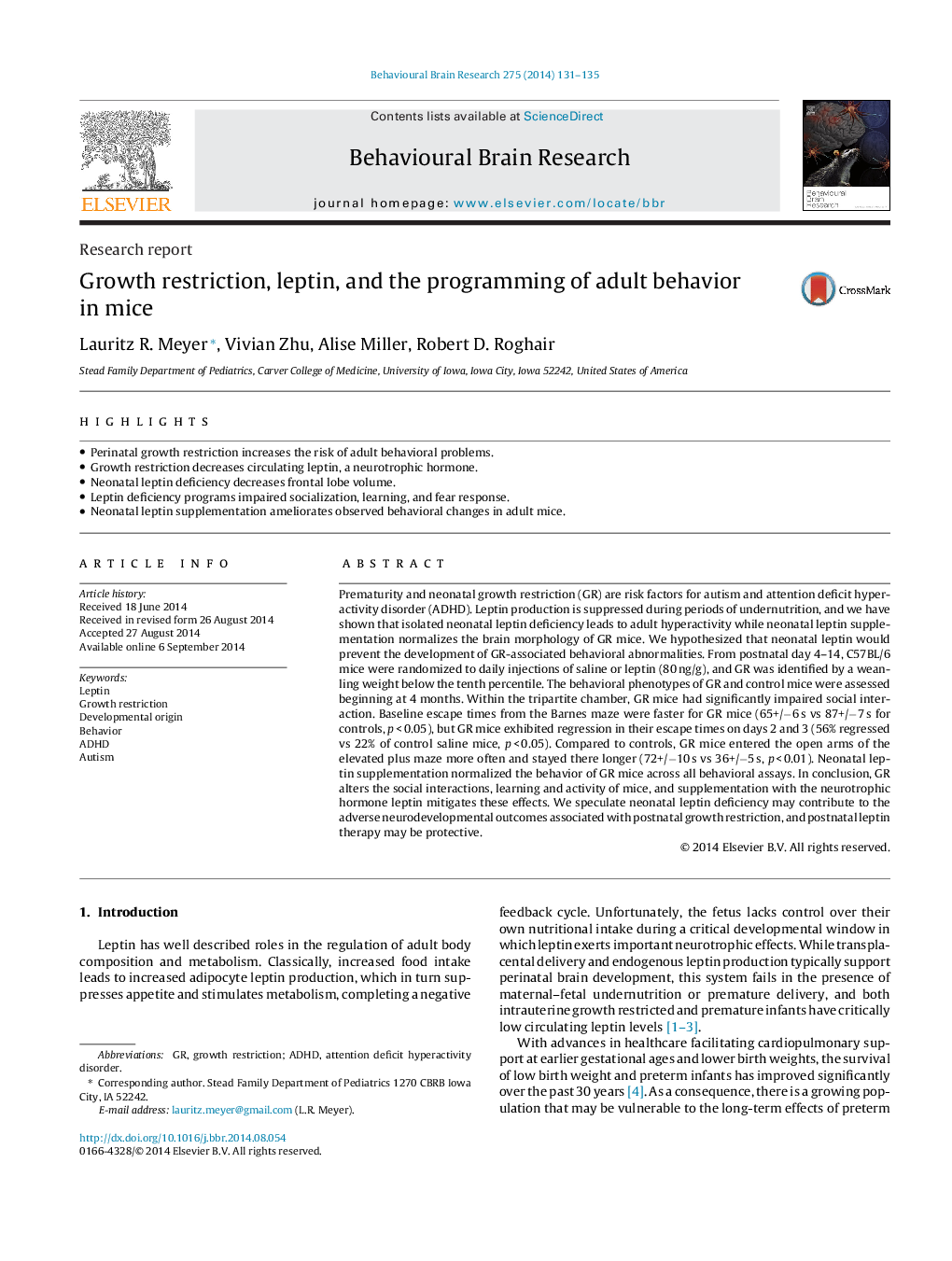| Article ID | Journal | Published Year | Pages | File Type |
|---|---|---|---|---|
| 6257833 | Behavioural Brain Research | 2014 | 5 Pages |
â¢Perinatal growth restriction increases the risk of adult behavioral problems.â¢Growth restriction decreases circulating leptin, a neurotrophic hormone.â¢Neonatal leptin deficiency decreases frontal lobe volume.â¢Leptin deficiency programs impaired socialization, learning, and fear response.â¢Neonatal leptin supplementation ameliorates observed behavioral changes in adult mice.
Prematurity and neonatal growth restriction (GR) are risk factors for autism and attention deficit hyperactivity disorder (ADHD). Leptin production is suppressed during periods of undernutrition, and we have shown that isolated neonatal leptin deficiency leads to adult hyperactivity while neonatal leptin supplementation normalizes the brain morphology of GR mice. We hypothesized that neonatal leptin would prevent the development of GR-associated behavioral abnormalities. From postnatal day 4-14, C57BL/6 mice were randomized to daily injections of saline or leptin (80 ng/g), and GR was identified by a weanling weight below the tenth percentile. The behavioral phenotypes of GR and control mice were assessed beginning at 4 months. Within the tripartite chamber, GR mice had significantly impaired social interaction. Baseline escape times from the Barnes maze were faster for GR mice (65+/â6 s vs 87+/â7 s for controls, p < 0.05), but GR mice exhibited regression in their escape times on days 2 and 3 (56% regressed vs 22% of control saline mice, p < 0.05). Compared to controls, GR mice entered the open arms of the elevated plus maze more often and stayed there longer (72+/â10 s vs 36+/â5 s, p < 0.01). Neonatal leptin supplementation normalized the behavior of GR mice across all behavioral assays. In conclusion, GR alters the social interactions, learning and activity of mice, and supplementation with the neurotrophic hormone leptin mitigates these effects. We speculate neonatal leptin deficiency may contribute to the adverse neurodevelopmental outcomes associated with postnatal growth restriction, and postnatal leptin therapy may be protective.
